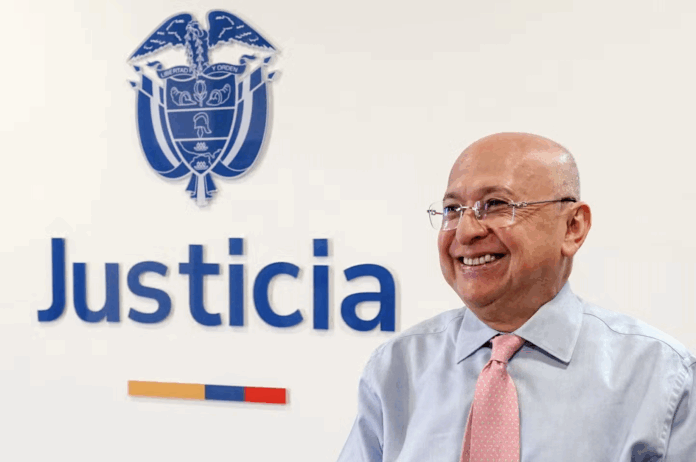A Defiant Signal from Bogotá: Colombia Challenges U.S. Demands
In geopolitics, a single statement can shift years of precedent. On Thursday, Colombia’s new Justice Minister Eduardo Montealegre announced the country will “suspend” extraditions to the United States for guerrilla leaders involved in peace negotiations with the government. A move bound to deepen diplomatic rifts with Washington.
What Bogotá is effectively saying is clear: better to seat these narco-guerrilla leaders at the negotiating table than hand them over to an American legal system that has long treated Colombia as its courtroom. Whether it’s defiance or sovereignty depends on where you sit, but it’s undeniably a break from decades of subordination to U.S. drug war orthodoxy.
Peace Through Bargaining: Petro’s Calculated Gamble
Speaking to AFP from his office, Montealegre, a heavyweight of Colombia’s judiciary, defended the government’s approach. “We are aiming for the same goal through different means […] dismantling organized crime, eradicating drug trafficking,” he stated.
In other words: after decades of militarized crackdowns and hundreds of extraditions, the drug war is far from won. Why not try diplomacy?
This aligns with President Gustavo Petro’s flagship doctrine of “total peace”, a controversial strategy rooted in negotiation with guerrilla remnants, paramilitaries, and drug cartels. It’s no coincidence that Petro himself was once a guerrillero, his critics have not forgotten.
Washington Seethes, Bogotá Holds the Line
The Colombia–United States extradition policy has always served as a litmus test of bilateral alignment. Under Petro, that alignment is visibly cracking.
For years, the U.S. funneled billions into Colombia under the banner of the “war on drugs.” But with cocaine production hitting record highs in 2023 (according to the UN) and guerrilla violence surging, even the most hawkish analysts are questioning the utility of endless extraditions.
Some voices in Washington are now calling for Colombia to be blacklisted as a drug trafficking state, which could slash U.S. aid and damage Bogotá’s international standing. Montealegre called such a move “unjust” and reminded skeptics that no country has done more, or sacrificed more, in the U.S.-led drug war than Colombia.
Conditions, Not Amnesty: Montealegre Draws the Line
The suspension is not a blank check. Guerrilla leaders will only avoid extradition if they disarm, cease violence, and abandon illicit crop cultivation. Montealegre promises strict oversight mechanisms to prevent criminal opportunists from exploiting the peace process.
Still, the subtext is clear: the Petro administration is prioritizing national reconciliation over foreign judicial demands, a shift in doctrine that draws cheers from some quarters of Latin America and concern from Washington.
Petro’s Break with Tradition, or Just More of the Same?
Montealegre, who served as Attorney General from 2012 to 2016 and helped broker the 2016 peace deal with the FARC, is no ideological radical. A figure trusted across political lines, from Nobel laureate Juan Manuel Santos to conservative stalwart Álvaro Uribe, his endorsement lends credibility to Petro’s plan.
Yet the signs on the ground remain worrying: 2024 has seen an alarming spike in armed violence, political assassinations, and guerrilla offensives. The official narrative of “peace through dialogue” seems increasingly detached from the Colombian countryside’s grim realities.
Petro’s refusal to extradite may be strategic, or it may be a miscalculation. In either case, the United States is watching closely, and it never forgets.
Sovereignty at a Cost
At stake is more than just Colombia’s extradition policy with the United States. It is the country’s right to set its own course, to prioritize national peace over imperial expectations.
By shielding certain guerrilla figures from extradition, the Petro government is testing the limits of its autonomy and the patience of its most powerful partner. In doing so, it confronts the legacy of Plan Colombia and the illusion that American tutelage guarantees peace.
Whether this bold move signals a path to genuine reconciliation or opens the door to renewed instability remains uncertain. But one thing is clear: Colombia is no longer simply obeying.



